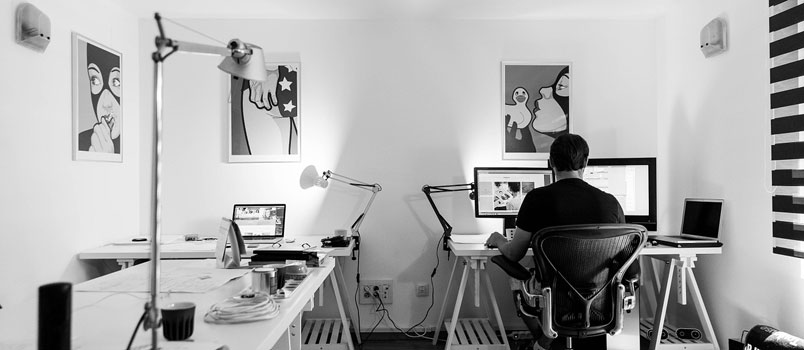By now everyone is used to video calls. Kids walk in unannounced; the dogs start barking in the background, and no one seems to bat an eye. But one of the things that makes video calls challenging is that they still aren’t in-person interactions. While they can be helpful for disseminating information and meeting about business topics, they lack the camaraderie and face-to-face of being together in a meeting room. On top of that, most people are hard to see in the videos and it becomes challenging at times to read facial expressions and other non-verbal cues like you would see in the boardroom.
Effectively working from home, means creating the best space possible to get work done. This includes lighting. When you have a video call with someone whose face is darkened, grainy, or in the shadows can feel less engaging than calls with people whose faces are well-lit.
This means that if you must take video calls from home, it’s important to get the best lighting for your room. A well-lit room also helps to improve your work as well and can be more energizing than working in a dimly lit space. Here are some of the best lighting tips for videos and to improve your workspace.
Don’t Put Lights Behind Your Head
Backlight is a big no-no when it comes to lighting for video calls. The light behind your head will give you a halo and do very little to light your face. If you can sit with your face turned toward a window or with a lamp in front of it, it will help people on the video calls see your face. Plus it helps the Video Conference PTZ camera better on your face as it will see you as the subject, and that means crisper videos than it would without it.
Get a Portable Ring Light
One of the ways that you can get around having a room with inadequate lighting is to use a ring light. This is basically a strip of lights in a circular shape. They are known for how well they light up faces, which is why people in the beauty industry use them for Instagram videos, why graphic designers use them when they are explaining how to do something, and why you should consider them even for your remote video calls. You’ll want the highest rated ring light to ensure you get the best quality possible.
Not all ring lights are created equal, some give off more light than others, some don’t have the radius needed to give a good lighting wash over faces, and some have color tones that can make you look a little green. Additionally, when you don’t have an open plug available during your video calls, you may want to consider one that’s portable and rechargeable.
Desk Lights Improve Your Workspace
Sometimes you don’t need the entire room to be brighter, but you do want more focused lighting where you are working. As a designer, you might find yourself not only creating work on the computer but also drawing and sketching on paper. Using a desk light can help fill in the light exactly where you need it. You can also use different bulbs to ensure that the lighting is as natural as possible. Additionally, when you need to hop on a conference call or a video chat with clients, you can leverage the desk light to give your face better light as well.
Use More Than One Light Source
Think of it this way, you want to use more than a flashlight directly pointed at your face for the best lighting for video conference calls. Using 3 total lights, one in front, and one to each side will ensure that your face is well-lit and looks great on those calls. This creates a dynamic lighting setup that is easy to do, and can be done using a variety of lighting types. If you’re constantly on calls, it helps to create a workspace that is conducive to these calls all the time. You might want to have a separate video call space from your desk space for this reason.
Additionally, it’s imperative that your background is a neutral or simple design. You don’t want anything unsightly or awkward hanging out behind you head.































